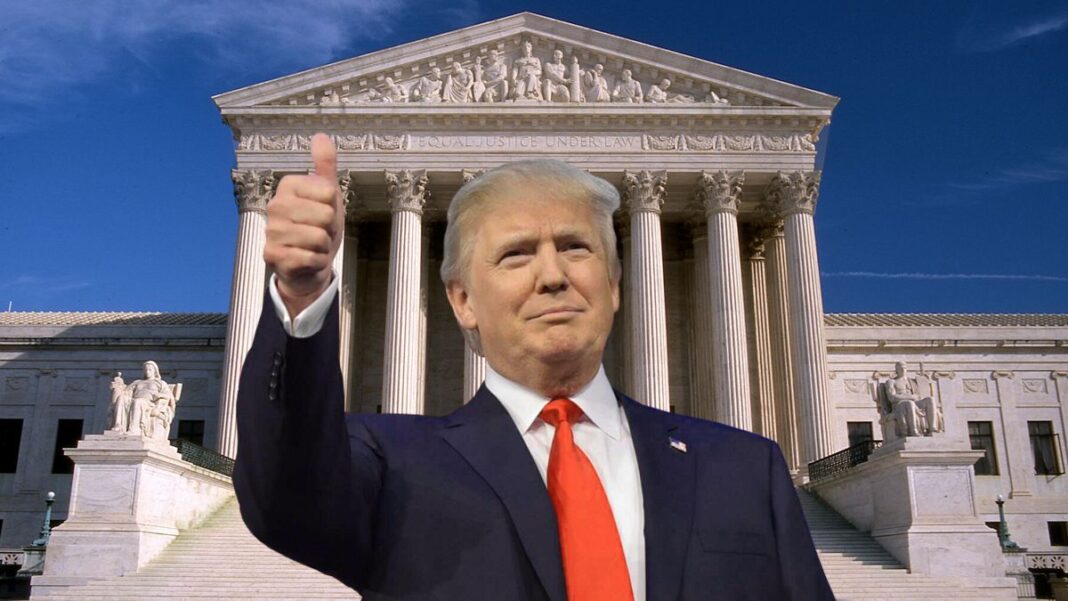President Trump’s case will now continue in the appeals court.
The U.S. Supreme Court rejected on Friday a petition by special counsel Jack Smith for an immediate review of a defense in one of two cases he is prosecuting against former President Donald Trump.
“Petition for a writ of certiorari before judgment denied,” the unsigned order reads.
A 1982 Supreme Court opinion had established absolute immunity for presidents from civil suits, but as both parties have argued, the bounds of immunity from criminal prosecution have not been defined.
If the Supreme Court had agreed to review the presidential immunity defense, it would have established the outcome of President Trump’s motion to dismiss this case based on presidential immunity in the appeals court.
It’s also a defense he has raised in several other cases, including civil cases, albeit unsuccessfully.
Both parties argued the case is of historical significance, citing it as evidence to either expedite or slow down the proceedings. In court briefings, the parties argued over the framing of President Trump’s presidential immunity defense.
Appeals Court Will Expedite Case
Earlier this month, U.S. District Court Judge Tanya Chutkan denied a motion to dismiss based on presidential immunity, allowing President Trump to take action in the U.S. Court of Appeals.
Prosecutors swiftly filed a request to expedite the appeal, which the appeals court quickly granted.
President Trump’s opening brief is due Dec. 23, and the prosecutors’ reply by Dec. 30.
The first hearing has already been scheduled for Jan. 9; the appeals court initially announced a stay of all other proceedings pending “final action” from the Supreme Court. The high court’s denial allows the appeal process to continue.
Presidential Immunity
President Trump is arguing that all the actions he’s been charged for were ones done in his official capacity as President of the United States.
That these official acts are covered under “presidential immunity” is the core of this particular defense.
While the Supreme Court has outlined absolute immunity from civil suits for presidents, defense attorneys argued that opening up presidents to criminal prosecution for acts in office would have reverberating effects.







